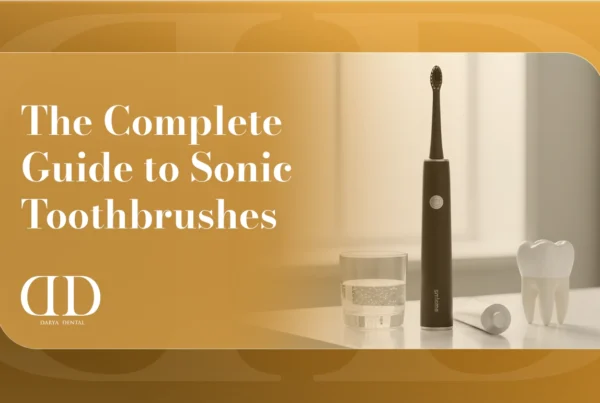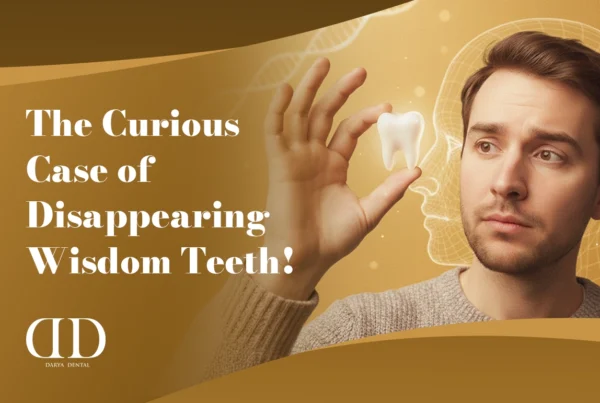
As a dentist with over two decades of experience, I’ve seen how stress, a common part of modern life, can take a surprising toll on oral health. While most patients are aware of how diet or hygiene impacts their teeth and gums, few realize that stress can be just as damaging. From grinding your teeth to worsening gum disease, stress triggers a cascade of physical and behavioral changes that can harm your smile. In this comprehensive guide, I’ll explain how stress affects your teeth and gums, the warning signs to watch for, and practical steps you can take to protect your oral health during stressful times.
The Connection Between Stress and Oral Health
Stress affects the body in complex ways, influencing everything from hormone levels to immune function. In the mouth, these effects manifest through direct physical habits, reduced saliva production, and neglected oral care routines. Over my years in practice, I’ve treated patients whose dental issues—ranging from cracked teeth to severe gum inflammation—were exacerbated by stress. Understanding this connection is the first step to safeguarding your smile.
How Stress Impacts Your Body
When you’re stressed, your body releases hormones like cortisol and adrenaline, preparing you for a “fight or flight” response. While this is helpful in short-term situations, chronic stress keeps these hormones elevated, weakening your immune system and increasing inflammation. In the mouth, this can make gums more susceptible to disease and slow healing from dental issues. Additionally, stress often leads to habits like teeth grinding or poor oral hygiene, directly harming teeth and gums.
Specific Ways Stress Affects Your Teeth and Gums
1. Teeth Grinding (Bruxism)
One of the most common stress-related dental issues I see is bruxism—grinding or clenching your teeth, often during sleep. Chronic stress triggers muscle tension in the jaw, leading to:
-
Worn Enamel: Grinding erodes the protective enamel layer, making teeth more vulnerable to sensitivity, cracks, and cavities.
-
Cracked or Chipped Teeth: The intense pressure can fracture teeth, requiring costly repairs like crowns or bonding.
-
Jaw Pain and TMJ Disorders: Bruxism strains the temporomandibular joint (TMJ), causing jaw soreness, headaches, or difficulty opening the mouth. In my practice, I’ve seen patients with flattened teeth or severe jaw pain who were unaware they were grinding at night until a dental exam revealed the damage.
2. Gum Disease and Inflammation
Stress weakens your immune system, making it harder to fight off infections like gingivitis or periodontitis. Elevated cortisol levels also increase inflammation, worsening gum conditions:
-
Gingivitis: Early gum disease causes red, swollen, or bleeding gums, often exacerbated by stress-induced immune suppression.
-
Periodontitis: Advanced gum disease can lead to gum recession, bone loss, and loose teeth if untreated. Stress makes it harder for gums to heal. I’ve treated patients whose gum disease progressed rapidly during stressful periods, such as job loss or family crises, highlighting the need for stress management.
3. Dry Mouth (Xerostomia)
Stress reduces saliva production, either directly through hormonal changes or indirectly via medications (e.g., antidepressants, anti-anxiety drugs). Saliva is critical for:
-
Neutralizing acids that erode enamel.
-
Washing away food particles and bacteria.
-
Delivering minerals to strengthen teeth. Dry mouth increases the risk of cavities, bad breath, and gum irritation. Many patients I see with chronic stress report a sticky, dry feeling in their mouth, often unaware it’s contributing to decay.
4. Canker Sores and Oral Ulcers
Stress can trigger painful canker sores or ulcers on the gums, tongue, or inner cheeks. While the exact cause isn’t fully understood, stress-related immune changes and inflammation play a role. These sores, though temporary, can make eating and speaking uncomfortable. I often see patients with recurring sores during high-stress periods, such as exams or major life changes.
5. Poor Oral Hygiene Habits
Stress often leads to neglected self-care, including oral hygiene. Patients under pressure may skip brushing, flossing, or dental visits, allowing plaque to build up and increasing the risk of:
-
Cavities due to bacterial growth.
-
Gum disease from plaque accumulation.
-
Bad breath from poor hygiene. I’ve had patients admit they “forgot” to brush during stressful weeks, only to face cavities or inflamed gums at their next appointment.
6. Unhealthy Coping Mechanisms
Stress can drive behaviors that harm oral health:
-
Smoking or Vaping: Nicotine constricts blood vessels, reducing gum blood flow and increasing periodontitis risk.
-
Excessive Alcohol: Alcohol dries the mouth and irritates gums, while frequent vomiting (e.g., from binge drinking) erodes enamel with stomach acid.
-
Stress Eating: Consuming sugary or acidic foods/drinks (e.g., soda, candy) increases cavity and erosion risk. In my clinic, I’ve seen patients whose stress-related snacking led to rapid decay, especially when combined with reduced brushing.
Warning Signs to Watch For
Stress-related dental issues can develop quietly, so be vigilant for these signs:
-
Tooth Sensitivity: Pain when eating hot, cold, or sweet foods may indicate worn enamel from grinding.
-
Jaw Pain or Headaches: Morning jaw soreness or frequent headaches could signal nighttime bruxism.
-
Bleeding or Swollen Gums: These suggest gingivitis or periodontitis, worsened by stress.
-
Dry Mouth: A sticky or dry feeling, especially with increased cavities, points to reduced saliva.
-
Canker Sores: Painful ulcers that recur during stressful periods.
-
Cracked or Worn Teeth: Visible damage or a rough texture when running your tongue over teeth. If you notice these, visit your dentist promptly. Early intervention can prevent minor issues from becoming serious.
How to Protect Your Teeth and Gums During Stressful Times
Based on my experience, the following strategies can mitigate stress’s impact on your oral health:
1. Manage Bruxism
-
Wear a Nightguard: A custom-fitted nightguard, prescribed by your dentist, protects teeth from grinding damage. I’ve seen nightguards save patients from costly repairs.
-
Stress Reduction Techniques: Practice relaxation methods like deep breathing, meditation, or yoga to reduce jaw tension.
-
Jaw Exercises: Gentle stretches, guided by your dentist or physiotherapist, can relieve TMJ strain.
2. Maintain Oral Hygiene
-
Brush Twice Daily: Use a soft-bristled toothbrush and fluoride toothpaste to remove plaque without damaging enamel.
-
Floss Daily: Clean between teeth to prevent gum disease, even during busy times.
-
Use a Mouthwash: An antiseptic or fluoride rinse can reduce bacteria and strengthen enamel. I advise patients to set reminders for brushing if stress disrupts their routine.
3. Combat Dry Mouth
-
Stay Hydrated: Drink water throughout the day to stimulate saliva and rinse away acids.
-
Chew Sugar-Free Gum: Xylitol gum boosts saliva flow and reduces cavity risk.
-
Avoid Dehydrating Substances: Limit caffeine and alcohol, which worsen dry mouth. I often recommend saliva-stimulating products to patients on stress-related medications.
4. Manage Canker Sores
-
Rinse with Saltwater: A warm saltwater rinse (1 tsp salt in 8 oz water) soothes sores and promotes healing.
-
Avoid Trigger Foods: Spicy, acidic, or rough foods (e.g., chips) can irritate sores.
-
Consult Your Dentist: For persistent sores, we may prescribe topical treatments.
5. Adopt Healthy Coping Mechanisms
-
Exercise: Physical activity reduces cortisol and improves overall health, indirectly benefiting your gums.
-
Healthy Diet: Choose tooth-friendly foods like dairy (rich in calcium) and high-fiber vegetables (e.g., celery) to stimulate saliva.
-
Limit Sugar and Acid: Avoid stress-eating sugary snacks or acidic drinks that harm enamel.
6. Visit Your Dentist Regularly
Routine checkups (every 6 months) allow us to catch stress-related issues early. We can:
-
Apply fluoride varnishes to strengthen enamel.
-
Fit you for a nightguard to prevent grinding damage.
-
Treat early gum disease before it progresses. I’ve helped patients reverse early damage with timely interventions.
7. Seek Professional Support
If stress feels overwhelming, consult a therapist or counselor. Addressing mental health reduces physical symptoms like grinding or poor hygiene. I often refer patients to specialists when stress significantly impacts their oral health.
Dental Treatments for Stress-Related Damage
If stress has already harmed your teeth or gums, modern dentistry offers solutions:
-
Fluoride Treatments: In-office varnishes or gels strengthen enamel and reduce sensitivity.
-
Composite Bonding: Repairs chipped or worn teeth caused by grinding.
-
Gum Therapy: Scaling and root planing treat periodontitis, while laser therapy reduces inflammation.
-
Nightguards: Protect teeth from further grinding damage.
-
Restorative Work: Crowns or veneers restore severely damaged teeth. At my clinic, I tailor treatments to each patient’s needs, ensuring both function and aesthetics are restored.
A Dentist’s Final Advice
Stress is an inevitable part of life, but it doesn’t have to ruin your smile. By recognizing how stress affects your teeth and gums—through grinding, gum disease, dry mouth, or poor habits—you can take proactive steps to protect your oral health. Prioritize stress management, maintain diligent oral hygiene, and visit your dentist regularly to catch issues early. Small changes, like using a nightguard or chewing xylitol gum, can make a big difference. As your dentist, my goal is to help you keep your smile healthy and vibrant, even in the most stressful times.






